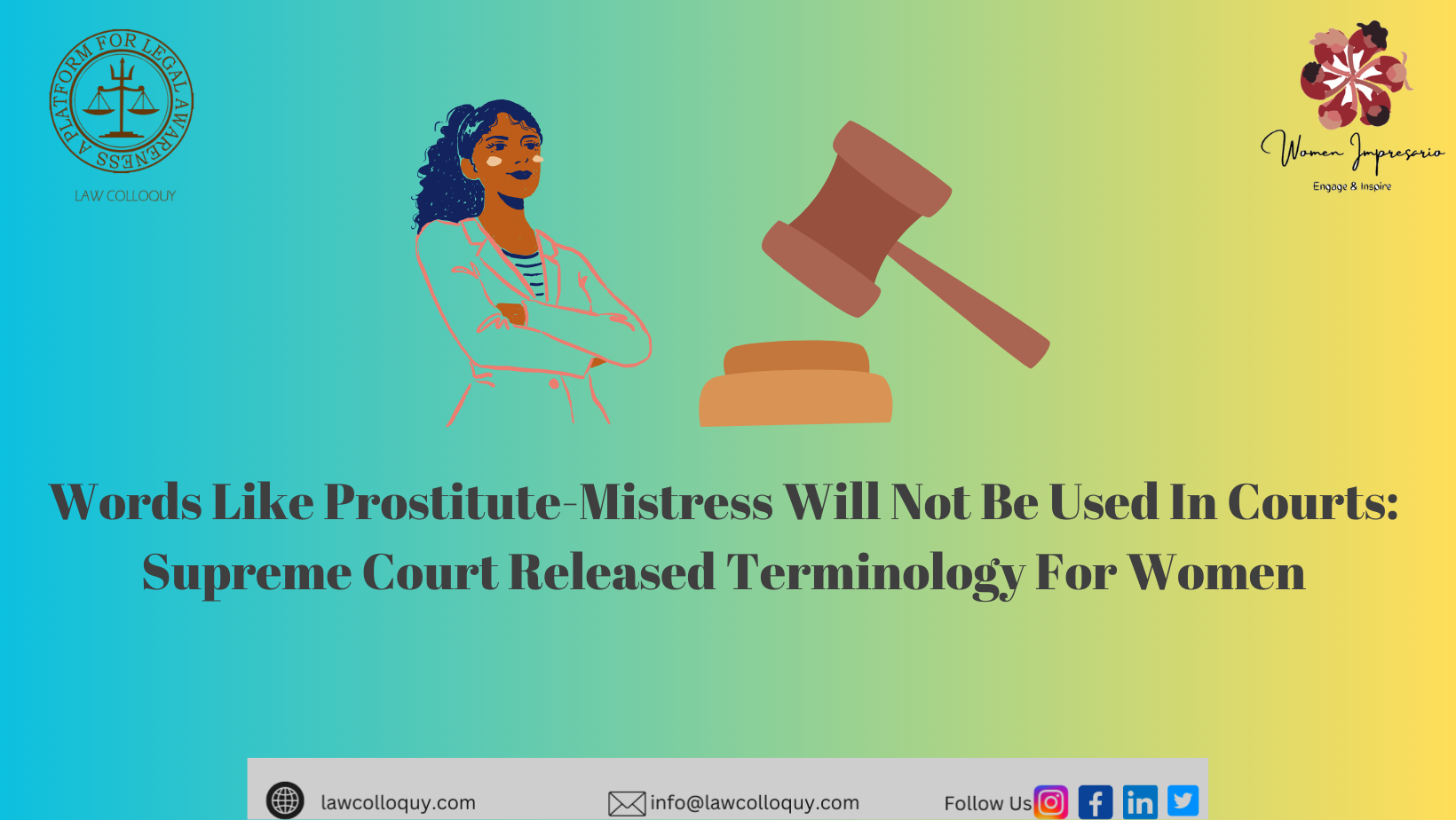Gender stereotype words will no longer be used in Supreme Court decisions and arguments. Supreme Court launches Gender Stereotypes Combat Handbook to crack down on derogatory terms used for women.
In an event held in the Supreme Court on Women's Day on March 8, CJI DY Chandrachud said that using objectionable words for women in legal matters would stop, and a dictionary would also come soon.
During this, he announced the release of a glossary of inappropriate words used for women in court language, arguments and decisions.
The Chief Justice told why the dictionary was needed:
1. CJI said- I have seen such decisions in which a woman was written as a mistress in a relationship with a man. There were many such cases in which applications were made for quashing FIRs under the Domestic Violence Act and Section 498A of IPC. In their judgments, women have been called thieves.
2. The purpose of compiling these words was not to humiliate any judge but to facilitate solving the problem inside our minds suffering from prejudices. We need to be open about these aspects to grow as a society.
3. We need to ensure zero tolerance for sexual harassment of women. Even in his presence, things like using foul language and telling lewd jokes should end for him.
4. When I was an advocate, seniors sitting in a group made fun of the fees of a lady lawyer there, which was intolerable. Then, no one dared to tell the senior that his language needed to be corrected. But now, we have come a long way.
5. People now feel that specific behaviour patterns, such as physical activity, language, action-based or symbolic, cannot be tolerated, especially in the workplace.
Releasing the handbook on Wednesday, August 16, CJI Chandrachud said it would make it easier for judges and lawyers to understand which words are stereotypical and how to avoid them.
What's in the Gender Stereotype Combat Handbook
CJI Chandrachud said there is a list of objectionable words in this handbook, and terms and sentences to be used in its place have been given. They can be used in court to provide arguments, give orders, and prepare copies. This handbook is for lawyers as well as for judges.
This handbook contains the words used by the courts in the past. It also explained why the words are wrong and how they can further distort the law.
|
STEREOTYPE PROMOTING LANGUAGE
|
REPLACEMENT
|
|
Affair Relationship |
Relationship Outside Marriage |
|
Adulteress |
Woman who has engaged in sexual relations outside of marriage |
|
Prostitute/Hooker |
Sex Worker |
|
Unwed Mother |
Mother |
|
Child Prostitution |
Smuggled Child |
|
Bastard Child
|
Non-Marital Child/ A Child whose parents are not married. |
|
Eve Teasing |
Street Sexual Harassment |
|
Provocative Clothing/Dress |
Clothing/Dress |
|
Effeminate |
Gender Neutral Words |
|
Good Wife |
Wife |
|
Concubine / Keep (Mistress) |
A Woman Who Has A Physical Relationship With A Man Outside Marriage. |
Handbook made for awareness, not criticism - CJI
CJI Chandrachud said that the purpose of preparing this handbook is not to criticise or doubt any decision but to tell how unknowingly the tradition of conservatism is going on. The purpose of the court is to explain what stereotyping is and its harm so that the courts can avoid using objectionable language against women. It will soon be uploaded on the website of the Supreme Court.
The Calcutta High Court team prepared the terminology
The legal terminology mentioned by CJI Chandrachud has been prepared by a committee headed by Calcutta High Court Justice Moushumi Bhattacharya. The committee consisted of retired Justices Prabha Sridevan, Justice Gita Mittal, and Professor Jhuma Sen, currently a faculty member at the West Bengal National University of Juridical Sciences, Kolkata.
The Chief Justice said in March that we have recently launched an LGBTQ handbook. Soon, we will also release a legal glossary of gender-inappropriate words. If you read a judgment in 376, you will come to know that many comments are inappropriate, but they are used. Our Judiciary will not be tiny by a legal glossary, and with time, we will move forward with legal language because we give more importance to language than subject and things.

